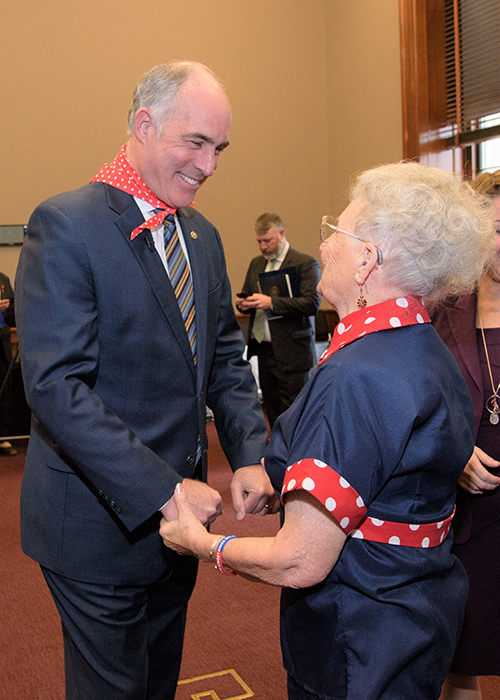Senator Casey's Committee Work
Committee work is essential to the Senate. It is where members advocate for the interests of their states, draw attention to important issues, and hold injurious entities accountable. Senator Casey uses his position on committees to move legislation and advance the priorities of the Commonwealth.
Senator Casey serves on four committees in the 118th Congress (2023-2024).
Committee on Finance
The Committee concerns itself with matters relating to taxation and other revenue measures; bonded debt of the United States; customs, collection districts, and ports of entry and delivery; reciprocal trade agreements; tariff and import quotas; the transportation of dutiable goods; deposit of public moneys; general revenue sharing; health programs under the Social Security Act, including Medicare, Medicaid, the Children's Health Insurance Program (CHIP), Temporary Assistance to Needy Families (TANF), and other health and human services programs financed by a specific tax or trust fund; and national social security.
.jpg)
Committee on Health, Education, Labor and Pensions
Chairman - Subcommittee on Children and Families
The Committee began in 1869 as the Committee on Education. From 1884 through the mid-1900s, it was known as the Education and Labor Committee. In 1999, the Committee was officially renamed the Health, Education, Labor and Pensions (HELP) Committee.

Select Committee on Intelligence
The Committee was created by the Senate in 1976 to “oversee and make continuing studies of the intelligence activities and programs of the United States Government,” to “submit to the Senate appropriate proposals for legislation and report to the Senate concerning such intelligence activities and programs,” and to “provide vigilant legislative oversight over the intelligence activities of the United States to assure that such activities are in conformity with the Constitution and laws of the United States.”

Special Committee on Aging
Chairman - Full Committee
The Special Committee on Aging was first established in 1961 as a temporary body. It was granted permanent status on February 1, 1977. While special committees have no legislative authority, they can study issues, conduct oversight of programs, and investigate reports of fraud and waste.

